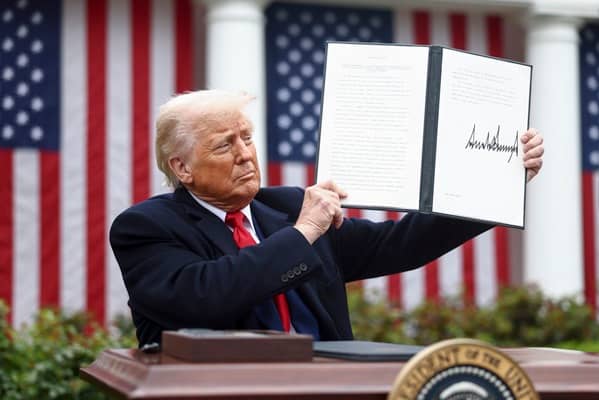US President Donald Trump’s continuing tariffs could have unexpected consequences for UK businesses, putting them at risk of breaching new environmental rules, a leading eco compliance firm has warned.
The caution from Manchester-based Ecoveritas comes as manufacturers worldwide are considering changing the way they package goods in response to President Trump’s policies on global trade.
Despite recent moves by the US to relax some tariffs, including trade agreements with China and the UK, the situation is likely to prompt producers to alter supply chains in the longer term to shield from disruption and increasing costs.
Global brands such as Coca-Cola have signalled a move away from aluminium cans to plastic packaging in response to a flat tariff imposed on steel and aluminium imports – and this is likely to impact UK businesses from a waste compliance perspective, even if they are not manufacturers themselves.
Ecoveritas, which works with leading brands including Suzuki and Spar, is urging British businesses to ensure they don’t fall foul of Extended Producer Responsibility (EPR) legislation introduced this year.
Andrew McCaffery, Chief Strategy Officer at Ecoveritas, said: “The global trade picture is becoming more complex, and that is creating an additional headache for businesses who deal with imported and exported goods, even if only indirectly.
“The headlines tend to focus on price rises for materials, but it is crucial that firms don’t lose sight of the rules they must adhere to when it comes to packaging and waste.”
Under the new EPR legislation, all domestic businesses with a turnover above £1 million and handling more than 25 tonnes of packaging per year are now responsible for the cost of recycling packaging waste – as well as tracking and reporting the amounts.
The rules are designed to combat growing issues with waste; estimates suggest worldwide plastic consumption could double by 2050, with just 9% of plastic waste currently being recycled.
Ecoveritas have highlighted that larger retailers could be faced with up to £130 million in additional compliance costs.
Andrew continued: “To see major brands now considering making huge changes to their supply chains means that UK firms must act now on their approach to handling waste.
“Even a small miscalculation can lead to overpayments in the hundreds of thousands of pounds, so it really is essential to get it right.”
But he added: “There is an opportunity for businesses of all sizes to reassess their relationship with waste, make positive changes and become more sustainable for the future.”

